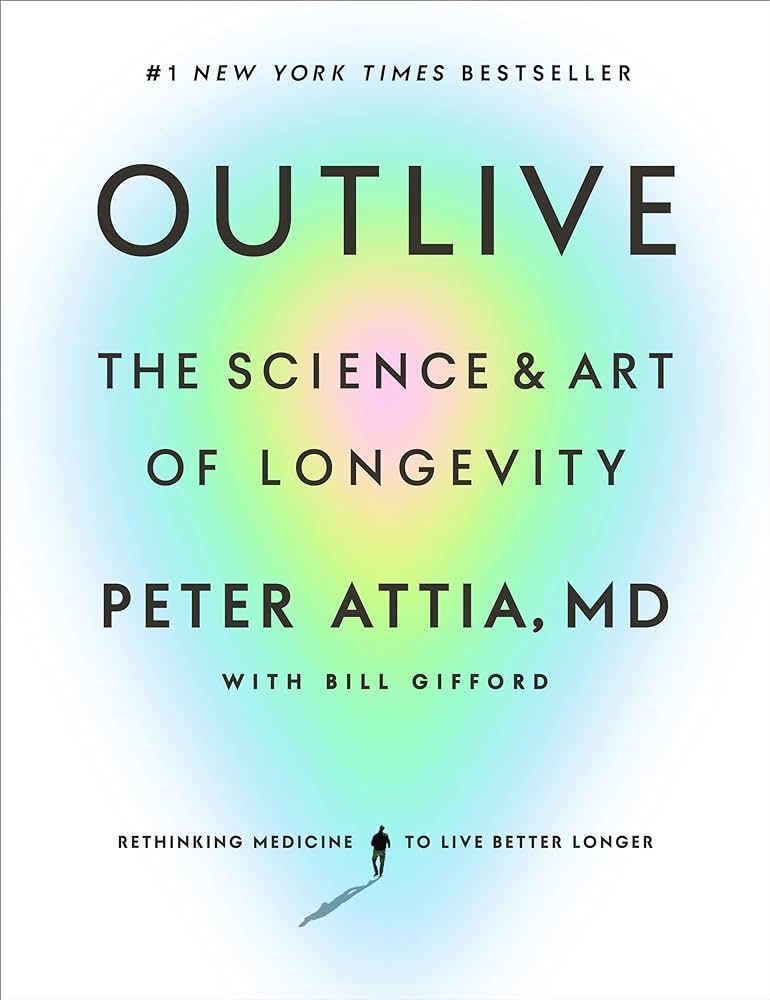
Outlive by Peter Attia is one of those bestsellers that you cannot avoid. Originally published in March 2023, Attia made the rounds on the podcast circuits, published any number of guest articles, and appeared on multiple talk shows. But I don’t begrudge him the success (2 million copies sold so far). The book is an in-depth manifesto on increasing your health span (healthy years of life). It’s not just about longevity. Attia really wants people to live better, not just longer.
The first half of the book looks at each of the 4 horsemen: heart disease, cancer, neurodegenerative disease (i.e., Alzheimer’s), and Type 2 diabetes and related metabolic dysfunction.
The second half of the book outlines practical steps that anyone can take to improve their own life and ideally avoid things that increase risk of one or more of the four horsemen coming for you.
The key takeaways are:
- Modern medicine is not so modern. It is great at dealing with infection and trauma. But we wait too long to treat chronic disease. Instead of looking at biomarkers on a continuum and addressing issues in advance of blood work or other issues falling outside the guidelines, we wait, until it’s too late to reverse track.
- Blood work “standards” or the range for healthy blood work is a shifting scale. It’s a standard based on what is “normal” today in the population, not what is actually healthy.
- Exercise is under-rated and we should really be thinking like centenarians. To open a jar at 90 or carry your groceries down the block at 80 or to hike up a hill at 70 — you really have to think about how active you are in your 30s, 40s, 50s, 60s. If you can’t do it now, there is no chance you can at 90. Attia has a ton of information on how to approach fitness.
- The feverish cult-like behaviour around food and diet needs to dial down. A lot of the food adjustments people make are based on studies done on fasting studies in mice, for example. Many studies do not translate to human subjects. Attia calls out many of these studies and outlines how his thinking on the role of food has changed.
- Sleep should be taken seriously. We haven’t evolved to not need sleep for a reason. It’s critical. Attia has a number of terrifying anecdotes about life as a resident, doctor, surgeon and why we dismiss this necessary state of being.
- Mental health is the last issue Attia addresses in the book and all I can say is that it is a miserable life you do not have good emotional regulation, good relationships, and a good sense of self.
Overall I enjoyed this book. I listened to it as an audiobook and in some ways Attia’s narration kept me going. There is a bit of a slog through theory and studies and medical information. But the autobiographical elements of the book keep it interesting, and help the reader apply the lessons to their own situation. I have now purchased the print copy so I have it as a reference.
If you liked Good Energy by Casey Means then this is the precursor to that book. They must have been writing at similar times since the books are published only a year apart. Perhaps most telling is that here are two medical professionals who are sounding the alarm about North American’s poor metabolic health. These books are more than a warning sign. They are an essential read.